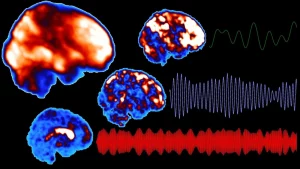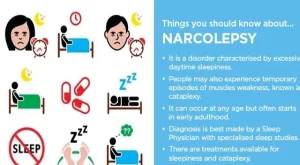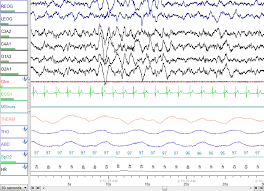Narcolepsy is a sleep disorder that makes people very drowsy during the day. People with narcolepsy find it hard to stay awake for long periods of time. They fall asleep suddenly. This can cause serious problems in their daily routine.
Sometimes narcolepsy also causes a sudden loss of muscle tone, known as cataplexy (KAT-uh-plek-see). This can be triggered by strong emotion, especially laughter. Narcolepsy is divided into two types. Most people with type 1 narcolepsy have cataplexy. Most people who don’t have cataplexy have type 2 narcolepsy.
Narcolepsy is a life-long condition for which there’s no cure. However, medicines and lifestyle changes can help manage the symptoms. Support from others — family, friends, employers and teachers — can help people cope with the disorder.
Symptoms of this disorder:
The symptoms of narcolepsy may get worse during the first few years of the disorder. Then they continue for life. They include:
- Excessive daytime sleepiness. People with narcolepsy fall asleep without warning. It can happen anywhere and at any time. It may happen when you’re bored or during a task. For example, you may be working or talking with friends and suddenly fall asleep. It can be especially dangerous if you fall asleep while driving. You might fall asleep for only a few minutes or up to a half-hour. After waking, you’ll often feel refreshed but you’ll get sleepy again.You also may experience a decrease in how alert and focused you feel during the day. Daytime sleepiness often is the first symptom to appear. Feeling sleepy makes it hard to focus and function.Some people with narcolepsy continue doing a task when they fall asleep briefly. For example, you may fall asleep while writing, typing or driving. You might continue to perform that task while asleep. When you awaken, you can’t remember what you did, and you probably didn’t do it well.
- Sudden loss of muscle tone. This condition is called cataplexy. It can cause slurred speech or complete weakness of most muscles. Symptoms may last up to a few minutes.Cataplexy can’t be controlled. It’s triggered by intense emotions. Often the emotions that cause cataplexy are positive. Laughter or excitement may cause the symptoms. But sometimes fear, surprise or anger can cause the loss of muscle tone. For example, when you laugh, your head may drop without your control. Or your knees may suddenly lose strength, causing you to fall.Some people with narcolepsy experience only one or two episodes of cataplexy a year. Others have several episodes a day. Not everyone with narcolepsy has these symptoms.
- Sleep paralysis. People with narcolepsy often experience sleep paralysis. During sleep paralysis, you can’t move or speak while falling asleep or upon waking. It’s usually brief — lasting a few seconds or minutes. But it can be scary. You may be aware of it happening and can recall it afterward.
Not everyone with sleep paralysis has narcolepsy.
- Hallucinations. Sometimes people see things that aren’t there during sleep paralysis. Hallucinations also may happen in bed without sleep paralysis. These are called hypnagogic hallucinations if they happen as you fall asleep. They’re called hypnopompic hallucinations if they happen upon waking. For example, you might feel as if there is a stranger in your bedroom. These hallucinations may be vivid and frightening because you may not be fully asleep when you begin dreaming.
- Changes in rapid eye movement (REM) sleep. REM sleep is when most dreaming happens. Typically, people enter REM sleep 60 to 90 minutes after falling asleep. But people with narcolepsy often move more quickly to REM sleep. They tend to enter REM sleep within 15 minutes of falling asleep. REM sleep also can happen at any time of the day.
Other characteristics
People with narcolepsy may have other sleep disorders. They might have obstructive sleep apnea, in which breathing starts and stops during the night. Or they may act out their dreams, known as REM sleep behavior disorder. Or they may have trouble falling asleep or staying asleep, called insomnia.
The Possible Causes:
The exact cause of narcolepsy is unknown. People with type 1 narcolepsy have low levels of hypocretin (hi-poe-KREE-tin), also called orexin. Hypocretin is a chemical in the brain that helps control being awake and when you enter REM sleep.
Hypocretin levels are low in people who experience cataplexy. Exactly what causes the loss of hypocretin-producing cells in the brain isn’t known. But experts suspect it’s due to an autoimmune reaction. An autoimmune reaction is when the body’s immune system destroys its own cells.
It’s also likely that genetics plays a role in narcolepsy. But the risk of a parent passing this disorder to a child is very low — only about 1% to 2%.


